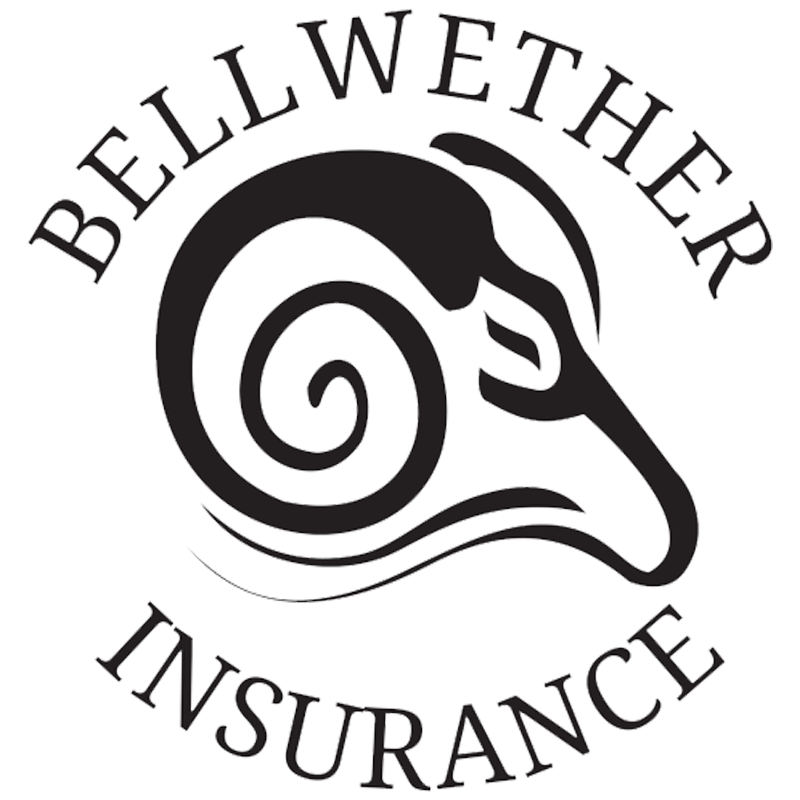Ohio Cleaning Service Insurance

Index
Understanding the Importance of Cleaning Service Insurance in Ohio
Types of Cleaning Service Insurance Available in Ohio
How to Choose the Right Insurance for Your Cleaning Service
Cost of Cleaning Service Insurance in Ohio
Navigating the Insurance Claims Process
Frequently Asked Questions about Cleaning Service Insurance in Ohio
Contact Us
Phone
216-600-2828
Location
100 N. Center Street PO Box 627 LaGrange, OH 44050
Cleaning service businesses play a
critical role in maintaining the cleanliness and hygiene of various establishments in Ohio. However, running a cleaning business comes with its own set of risks and challenges. One of the most effective ways to mitigate these risks is through obtaining the right insurance coverage. In this comprehensive guide, we'll delve into the importance of cleaning service insurance, the types available, tips for choosing the right policy, and much more.
Understanding the Importance of Cleaning Service Insurance in Ohio
The cleaning industry, while essential, is fraught with potential liabilities. For business owners in Ohio, understanding the importance of cleaning service insurance is crucial not just for compliance, but also for the viability of their operations.
Insurance acts as a safety net, protecting cleaning service owners from potential financial setbacks due to lawsuits, property damage, or employee-related incidents. By having appropriate coverage, businesses can focus on their operations without the constant worry of unexpected legal or financial liabilities.
The Role of Insurance in Your Cleaning Business
Insurance plays a multifaceted role in the cleaning business. It not only covers liabilities but also fosters client trust. Clients are more likely to hire a cleaning service that is insured because it reflects professionalism and accountability.
Moreover, in the event of an accident or damage, having the right insurance ensures that the business can recover without significant financial loss. This stability allows cleaning services to invest in growth opportunities and focus on improving service quality. For instance, with the peace of mind that insurance provides, a cleaning business can explore expanding its service offerings, such as eco-friendly cleaning solutions or specialized deep-cleaning services, which can attract a broader clientele.
Why Ohio Cleaning Businesses Need Insurance
Ohio has specific regulations that mandate certain types of insurance for businesses, including cleaning services. Not only does having insurance protect against legal actions, but it also safeguards the company's assets, including equipment and vehicles used for operations.
Additionally, in a market as competitive as Ohio’s cleaning industry, having proper insurance coverage can distinguish a business from its competitors. It demonstrates a commitment to professionalism and risk management, which are essential qualities for attracting and retaining clients. Furthermore, clients often inquire about insurance coverage before hiring a cleaning service, as they want assurance that their property is in safe hands. This not only enhances the credibility of the business but also opens doors to larger contracts, such as commercial cleaning agreements with businesses that prioritize risk management and liability protection.
Furthermore, insurance can also cover employee-related incidents, which is particularly important in an industry that relies heavily on a workforce that may be exposed to various hazards. Workers' compensation insurance, for example, provides necessary
support in case of injuries sustained on the job, ensuring that employees are taken care of while also protecting the business from potential lawsuits. This not only fosters a safe working environment but also promotes employee morale, as workers feel valued and secure in their roles. In a sector where turnover can be high, such measures can help retain skilled workers and maintain service consistency.

Types of Cleaning Service Insurance Available in Ohi
There are several types of cleaning service insurance policies that businesses can consider based on their unique needs. Understanding these options is key to making an informed decision regarding coverage.
General Liability Insurance
General liability insurance is typically the foundation of a cleaning service's insurance coverage. It protects against claims of bodily injury or property damage that might occur during the course of business operations.
For example, if a client trips over a cleaning product left on the floor and gets injured, general liability insurance covers the potential medical expenses and legal costs that arise from that incident. Additionally, this insurance can cover damages to a client's property caused by your cleaning staff, such as accidentally breaking a valuable item while dusting. This level of protection not only helps to mitigate financial risks but also enhances your business's credibility, as clients are more likely to trust a service that is adequately insured.
Workers Compensation Insurance
Workers compensation insurance is critical for businesses that employ staff. This type of insurance covers medical expenses and lost wages for employees who are injured or become ill as a result of their job.
In Ohio, this insurance is required for most employers. It ensures that your employees receive the necessary support while safeguarding your business from potential lawsuits related to workplace injuries. Moreover, having workers compensation insurance can foster a positive work environment, as employees feel more secure knowing they are protected in case of an accident. This can lead to higher morale and productivity, ultimately benefiting your cleaning service in the long run.
Commercial Auto Insurance
If your cleaning business uses vehicles for transportation, commercial auto insurance is essential. This policy covers damages and liabilities in the event of an accident involving a vehicle used for business purposes.
It's important to note that personal auto insurance typically does not cover accidents occurring while using a vehicle for business, making commercial auto insurance a necessity for cleaning businesses that operate fleets or rely on vehicles for their day-to-day operations. Additionally, this insurance can cover not just the vehicle itself, but also any equipment or supplies that might be damaged in an accident, providing comprehensive protection for your business assets on the road.
Equipment Breakdown Insurance
Cleaning businesses rely heavily on equipment such as vacuum cleaners, floor buffers, and other machines. Equipment breakdown insurance protects against losses due to equipment failure, ensuring that your operations can continue without lengthy interruptions.
This type of insurance ensures that you can repair or replace essential equipment without the burden of significant financial strain, helping maintain daily productivity. Furthermore, it can cover the loss of income resulting from equipment downtime, allowing you to manage cash flow more effectively during unexpected repairs. Investing in this insurance not only safeguards your immediate operational capabilities but also contributes to the long-term success of your cleaning business by minimizing disruptions and maintaining client satisfaction.
How to Choose the Right Insurance for Your Cleaning Service
Selecting the right insurance policies for your cleaning service in Ohio can be a daunting task. However, with careful consideration and assessment of your business needs, you can make an informed choice.
Assessing Your Business Risks
The first step in choosing insurance is to evaluate the specific risks associated with your cleaning business. Consider factors such as the scale of operations, the number of employees, the types of cleaning services offered, and the areas serviced.
Identifying these risks will help you determine the types of coverage that are essential for your business. For instance, if you offer commercial cleaning services, you may need higher liability limits compared to a residential cleaning service. Additionally, think about the equipment you use and the potential for accidents, such as slips and falls, which can occur on client premises. Understanding these nuances will allow you to tailor your insurance to cover not just general liabilities but also specific incidents that could arise in your day-to-day operations.
Comparing Insurance Providers
Once you've assessed your risks, the next step is to research and compare different insurance providers. Look for companies that specialize in business insurance, particularly for cleaning services.
Evaluate coverage options, policy limits, premiums, and customer reviews. It’s vital to choose a provider with a solid reputation for customer service and claims handling, as this can significantly impact your experience when you need to file a claim. Furthermore, consider reaching out to other cleaning service owners in your area to gather recommendations and insights about their experiences with various insurers. Networking within your industry can provide valuable information that may not be readily available online and can help you make a more informed decision.
Understanding Policy Terms and Conditions
Before finalizing any insurance policy, take the time to thoroughly read and understand the terms and conditions. Pay attention to what is covered, what is excluded, and any limits on coverage.
Seek clarification on any ambiguous terms from the provider, and don’t hesitate to ask about endorsements or additional coverage options that could be beneficial for your specific business needs. It's also wise to inquire about the claims process and any documentation required should you need to file a claim. Understanding these details upfront can save you from potential headaches later on. Additionally, consider the financial stability of the insurance company; a provider with a strong financial background is more likely to fulfill claims efficiently, providing peace of mind as you focus on growing your cleaning service.
Cost of Cleaning Service Insurance in Ohio
The cost of cleaning service insurance can vary significantly based on various factors. Understanding these factors can help cleaning business owners budget effectively for their insurance needs.
Factors Influencing Insurance Premiums
Several elements affect the premium rates for cleaning service insurance, including:
- The size and scope of your business
- The types of services you offer
- Your business location
- Your claims history
- The coverage limits chosen
Insurance providers evaluate these factors to assess the overall risk associated with insuring your business, which in turn impacts your premiums. For instance, a larger cleaning company with multiple employees and extensive service offerings may face higher premiums than a sole proprietor offering basic residential cleaning. Additionally, if your business operates in a densely populated urban area, the risk of accidents or claims may be perceived as higher compared to a rural setting, further influencing your insurance costs.
Ways to Lower Your Insurance Costs
While insurance is a vital expense for your cleaning business, there are ways to manage and potentially lower your insurance costs:
- Bundle multiple policies with one provider for a discount.
- Implement safety and training programs to reduce risk.
- Increase your deductible to lower your premium.
- Regularly review and adjust coverage as your business grows.
Taking these proactive measures can help keep your insurance costs manageable without sacrificing coverage quality. Additionally, maintaining a good relationship with your insurance agent can provide insights into available discounts and policy adjustments that align with your evolving business needs. Engaging in regular risk assessments and staying informed about industry best practices can also contribute to a safer working environment, ultimately leading to lower insurance premiums over time.

When an incident occurs, knowing how to navigate the insurance claims process can save you time and stress. Understanding the steps involved will prepare you for any eventuality. Whether it’s a minor fender bender or a significant property damage event, being equipped with the right knowledge can make all the difference in how quickly and efficiently your claim is processed.
When and How to File a Claim
Filing a claim should be done as soon as an incident occurs that may lead to a loss. Ideally, notify your insurance provider within a few days of the event to avoid complications. Delaying your claim can result in a denial or reduction of benefits, as many policies have specific timelines for reporting incidents.
Gather all relevant details about the incident, including photos, witness statements, and any documentation that supports your claim. This information will be vital in the claims process. Additionally, consider keeping a detailed log of any conversations with your insurance adjuster, including dates, times, and the content of your discussions. This record can serve as a helpful reference should any disputes arise during the claims process.
Understanding the Claims Review Process
After filing your claim, the insurance company will review the documentation and assess the merits of your claim. This process may involve an investigation, which can take time depending on the complexity of the claim. The insurance adjuster assigned to your case will evaluate the evidence and may even visit the site of the incident to gather firsthand information.
Stay in communication with your insurance provider throughout this process. Be proactive in providing any additional information they may request to facilitate the review and expedite the resolution. It’s also beneficial to familiarize yourself with your policy’s terms and conditions, as this knowledge can empower you to advocate for your rights effectively. Understanding the nuances of your coverage can help you navigate potential pitfalls and ensure that you receive the compensation you are entitled to without unnecessary delays.
Frequently Asked Questions about Cleaning Service Insurance in Ohio
As a cleaning business owner in Ohio, you may have several questions regarding insurance. Here are some frequently asked questions that might help clarify your doubts.
Is Cleaning Service Insurance Mandatory in Ohio?
While cleaning service insurance is not mandated by law for all cleaning businesses, certain types of insurance, like workers compensation, are legally required if you have employees. However, carrying general liability insurance is widely recommended to protect against potential risks. This is particularly important in the cleaning industry, where accidents can occur, and property damage can happen unexpectedly. Having the right coverage not only safeguards your business but also instills confidence in your clients, knowing that you are prepared for any mishaps.
What Does Cleaning Service Insurance Cover?
Cleaning service insurance typically covers various aspects depending on the policy type. General liability insurance covers third-party injuries and property damage, while workers compensation covers employee-related incidents. Other types of insurance, such as commercial auto insurance and equipment breakdown insurance, cover specific business needs. Additionally, some policies may offer coverage for lost or damaged client property, which can be crucial for maintaining trust and long-term relationships with your clients. Understanding the nuances of each coverage type can help you tailor your insurance package to meet the specific demands of your cleaning business.
How Much Insurance Do I Need for My Cleaning Business?
The amount of insurance you need depends on your business operations, risks, and client expectations. Evaluating your specific risks and consulting with an insurance broker can help determine appropriate coverage amounts for your unique situation. Factors such as the size of your business, the types of services you offer, and the clientele you serve can all influence your insurance needs. For instance, if you handle sensitive environments like healthcare facilities, you may require additional coverage to address the heightened risks associated with those settings.
Moreover, it’s essential to periodically review your insurance coverage as your business grows or changes. As you expand your services or take on larger contracts, your risk exposure may increase, necessitating adjustments to your policy. Staying proactive in managing your insurance can help ensure that you remain adequately protected and can adapt to the evolving landscape of your cleaning business.


